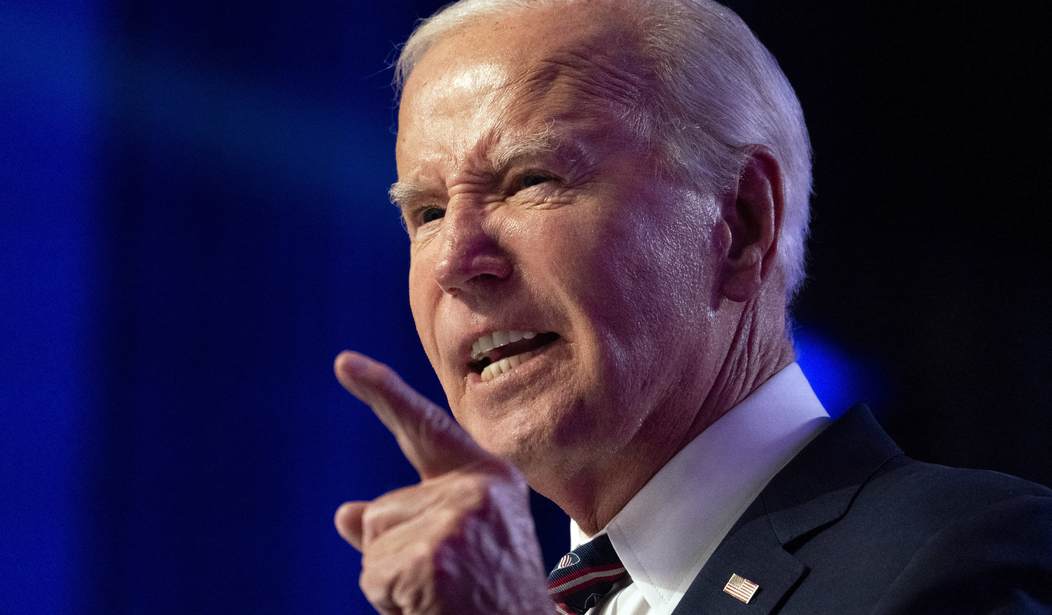Last fall, the Biden administration announced over $300 million in funding to support the president's Cancer Moonshot initiative. The ambitious goal is to reduce death rates from cancer by 50% over the next quarter century.
Regrettably, this big commitment of taxpayer funding to reduce cancer deaths doesn't begin to compensate for the damage currently being inflicted on private-sector investment in pharmaceutical research as a result of the Inflation Reduction Act (IRA). The IRA gives Washington the power to impose price controls on drugs the government is buying for Medicare.
The IRA is already undermining investment in pharmaceutical research and development by shortening the window investors have to recoup their funding and make a return. Congress only proceeded to make matters worse by establishing different price-setting rules depending on the class of the drug. Small molecule drugs, typically pills or tablets, receive just nine years of exemption after FDA approval before price controls can kick in. Biologics - drugs typically administered by IV or injection in a clinical setting - receive four additional years.
That discrepancy threatens to gut an entire class of new cancer medications – and the many innovative firms and small businesses at the forefront of developing them.
Private sector funding accounts for nearly two-thirds of all investment in research and development. Life-science firms are inherently a high-risk proposition for investors. Less than 10% of new drugs entering clinical trials ever make it to market, and countless more candidates never even make it to trials. Investors need to know that when a drug they back succeeds, it will not only make a return on its own development costs, but also cover the cost of the inevitable failures.
Recommended
From the investor perspective, the 13-year exemption period for biologics is far more appealing than the nine years small molecules receive - especially given that about half of a drug's cumulative sales revenue typically accrues in years 10-13 following approval.
If investors turn their backs on small molecule drugs in favor of biologics or other sectors altogether, we'll miss out on some of the most exciting prospects for a new generation of life-saving oncology drugs.
Since 2000, the majority of oncology drugs the FDA has approved have been small molecules. Because of their reduced size and lower molecular weight, they are prime candidates for targeting malignant tissue without damaging healthy cells nearby.
Unlike biologics, small molecule drugs are also uniquely capable of permeating the microscopic membrane lining blood vessels in the brain, allowing for novel treatments for brain cancers and a host of other neurological conditions from Alzheimer's to depression.
Moreover, it’s not only about discovering new therapies but making the most of the ones we currently have. After a drug receives FDA approval for a particular "indication," biotech firms often undertake additional research to find other uses. For small molecule drugs that received FDA approval between 2006 and 2012, 45% went on to approval for a new indication seven or more years later - most commonly to treat a different disease or to expand the age group that can take the drug.
But the countdown to CMS price-setting doesn't reset with each new indication. So the incentive to invest in new clinical trials and other research diminishes rapidly as price controls loom.
It's not just the loss of cures at stake, bad as that is for patients. For many Americans, their livelihood is on the line. Small and mid-size biotech businesses, and by extension their dedicated employees, would be hit the hardest.
Small molecule drugs represent around 90% of all drugs on the market and accounted for more than 75% of all FDA approvals between 2010 and 2020. Small and mid-size biotechs, meanwhile, are responsible for over 75% of drugs currently in development. For many smaller biotechs, research into small molecules makes up their entire portfolio.
There are an estimated 1.3 million people employed at small or mid-sized biopharmaceutical companies in the United States, which make up 99% of the businesses in the industry. If investments in small molecule research dry up, these companies and the jobs they create will disappear.
Nearly half of all oncology drugs originated in small biotechs throughout the 2010s. The 2020s should be building on that record.
But for that to happen and for President Biden's moonshot to have a chance, Congress needs to extend the price-control exemption period for small molecules to match the 13 years for biologics - or better still, get rid of price controls altogether.

























Join the conversation as a VIP Member